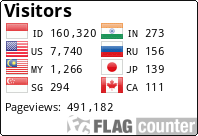The Effect of Contextual Teaching And Learning (CTL) Learning Model on The Ability Of Concept Understanding Class VII Students of SMP 16, Kota Bengkulu
DOI:
https://doi.org/10.33369/jpmr.v4i1.7525Keywords:
Contextual Teaching and Learning (CTL), Concept Understanding AbilityAbstract
This study aims to determine the effect of the Contextual Teaching and Learning (CTL) learning model on the ability to understand the concepts of class VII students of SMP 16 Kota Bengkulu. The research carried out was quasi-experimental with a population of all students in class VII of SMP 16 Kota Bengkulu totaling 218 students. Samples were taken by random sampling technique and a sample of 60 students was obtained, 30 students in the VIIA class as the experimental class, 30 students in the VIIE class as the control class. Data collection using Instrument concept understanding ability test. Data analysis techniques using Ancova. The results showed that there was the influence of the Contextual Teaching and Learning (CTL) learning model on the conceptual comprehension ability of seventh grade students in Bengkulu City 16 Junior High School at 80.50% with an average of 82.75 and there was an effect of an initial ability of 60.50% with an average average of 82.80. It can be concluded that the ability to understand students' concepts is better by using the Contextual Teaching and Learning (CTL) learning model.
References
Amri, S. Dan Khoiru, L. (2010). Construction of Learning Development. Jakarta: Prestigious Library Achievement.
Ary, Donald, Jacobs, L. C., and Razavieh, Asghar. (2011). Introduction to Research in Education, Arief Furchan's Translation. Yogyakarta: Student Library.
Johnson, E. B. (2008). Contextual Teaching and Learning. Bandung: Kaifa
Ruhimat, Toto. (2009). Curriculum & Learning. Bandung: Department of Curriculum and Educational Technology.
Sanjaya, W. 2009. Standardized Learning Learning Strategies Educational Process. Kencana. Jakarta. Sanjaya, W. (2013). Standard Oriented Learning Strategies Educational Process. Kencana. Jakarta.
Schunk, Dale H. (2012). Learning Theories: The Sixth Edition Educational Perspective. Student Library: Yogyaka.
Trianto. (2008). Designing Contextual Teaching and Learning in the Classroom. Jakarta: Smart Library Publisher.
Prahastiwi, R. (2012). Application of the CTL (Contextual Teaching And Learning) Approach to Increase the Activity and Mathematics Learning Achievement of Class VIII A Students in Babadan District 2 Middle School Academic Year 2012/2013. Muhammadiyah Ponorogo University.
T. T. LAM. (2007). "Contextual approach in teaching mathematics: an example of the sum of series of positive integers". International Journal of Mathematical Education in Science and Technology (IJMEST), National Institute of Education, Nanyang Technological University, Singapore Published online: Jul 03 2007.
Widada, W. (2015). Process of Achieving Mathematical Concepts by Utilizing Contextual Learning Media. Articles published in: Research Journal of Mathematics Education and Science, Vol. 22, No. 1, March 2015: 31-44.
Widada, W., Herawaty, D., & Lubis, A. N. M. T. (2018). Realistic mathematics learning based on the ethnomathematics in Bengkulu to improve students’ cognitive level. Journal of Physics: Conference Series, 1088. https://doi.org/10.1088/1742-6596/1088/1/012028
Widada, W., Herawaty, D., Falaq, A., Anggoro, D., Yudha, A., & Hayati, M. K. (2019). Ethnomathematics and Outdoor Learning to Improve Problem Solving Ability. Advances in Social Science, Education and Humanities Research, Volume 295, 295(ICETeP 2018), 13–16.
Downloads
Published
How to Cite
Issue
Section
License

Jurnal Pendidikan Matematika Raflesia oleh https://ejournal.unib.ac.id/index.php/jpmr dilisensikan di bawah Lisensi Internasional Creative Commons Attribution-ShareAlike 4.0 International .







